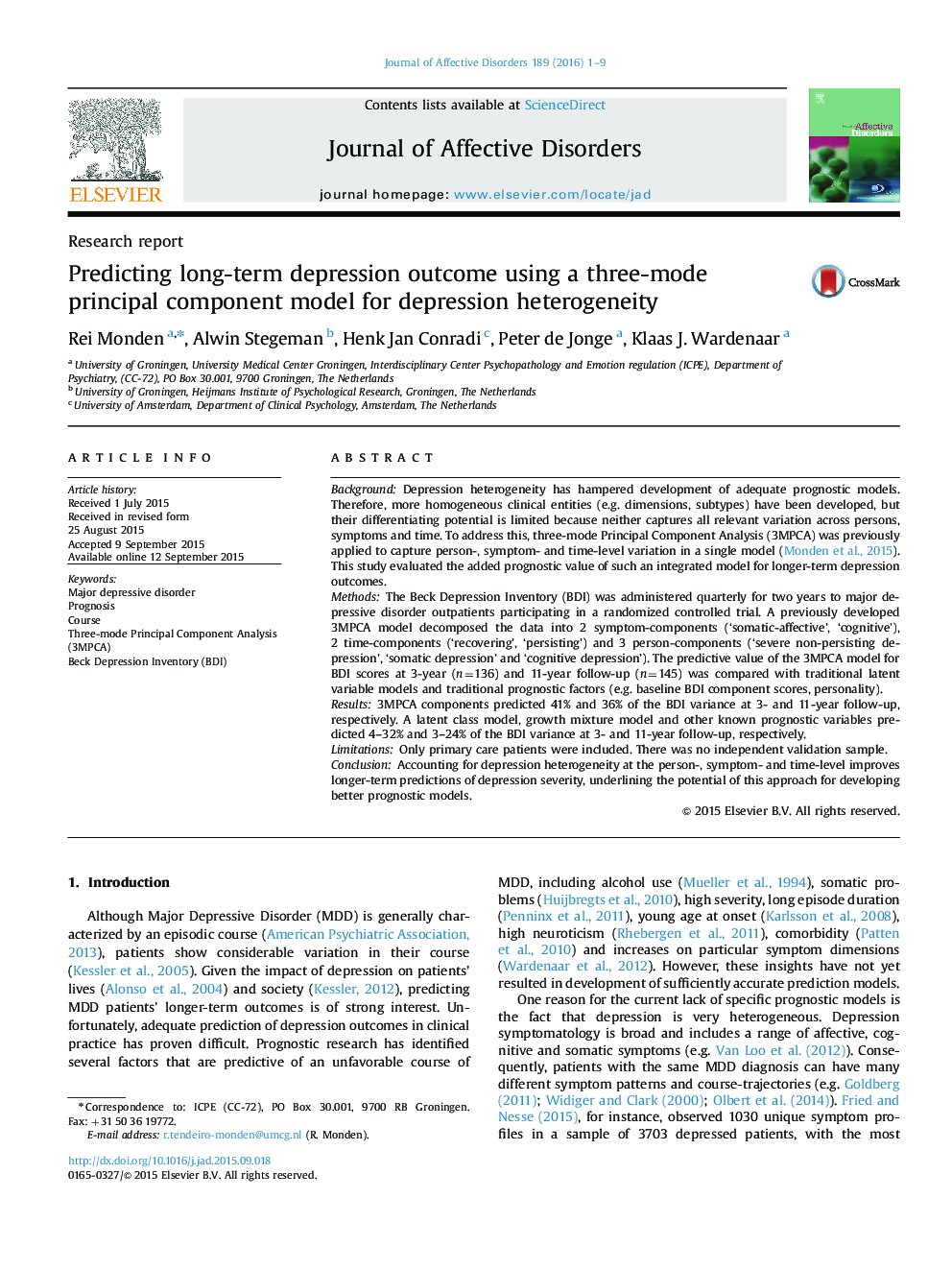| کد مقاله | کد نشریه | سال انتشار | مقاله انگلیسی | نسخه تمام متن |
|---|---|---|---|---|
| 6230830 | 1608136 | 2016 | 9 صفحه PDF | دانلود رایگان |
- Depression heterogeneity is observed across persons, symptoms and time.
- These sources of heterogeneity are simultaneously captured with 3MPCA.
- Persons'component scores reflect course variations on different symptom domains.
- 3MPCA components predict long-term depression outcomes.
- 3MPCA predicted outcomes better than other predictors and models.
BackgroundDepression heterogeneity has hampered development of adequate prognostic models. Therefore, more homogeneous clinical entities (e.g. dimensions, subtypes) have been developed, but their differentiating potential is limited because neither captures all relevant variation across persons, symptoms and time. To address this, three-mode Principal Component Analysis (3MPCA) was previously applied to capture person-, symptom- and time-level variation in a single model (Monden et al., 2015). This study evaluated the added prognostic value of such an integrated model for longer-term depression outcomes.MethodsThe Beck Depression Inventory (BDI) was administered quarterly for two years to major depressive disorder outpatients participating in a randomized controlled trial. A previously developed 3MPCA model decomposed the data into 2 symptom-components ('somatic-affective', 'cognitive'), 2 time-components ('recovering', 'persisting') and 3 person-components ('severe non-persisting depression', 'somatic depression' and 'cognitive depression'). The predictive value of the 3MPCA model for BDI scores at 3-year (n=136) and 11-year follow-up (n=145) was compared with traditional latent variable models and traditional prognostic factors (e.g. baseline BDI component scores, personality).Results3MPCA components predicted 41% and 36% of the BDI variance at 3- and 11-year follow-up, respectively. A latent class model, growth mixture model and other known prognostic variables predicted 4-32% and 3-24% of the BDI variance at 3- and 11-year follow-up, respectively.LimitationsOnly primary care patients were included. There was no independent validation sample.ConclusionAccounting for depression heterogeneity at the person-, symptom- and time-level improves longer-term predictions of depression severity, underlining the potential of this approach for developing better prognostic models.
Journal: Journal of Affective Disorders - Volume 189, 1 January 2016, Pages 1-9
